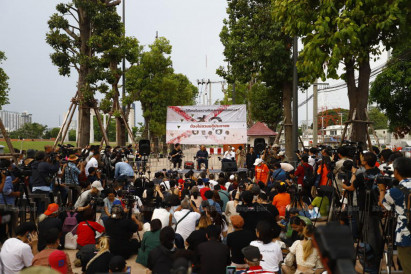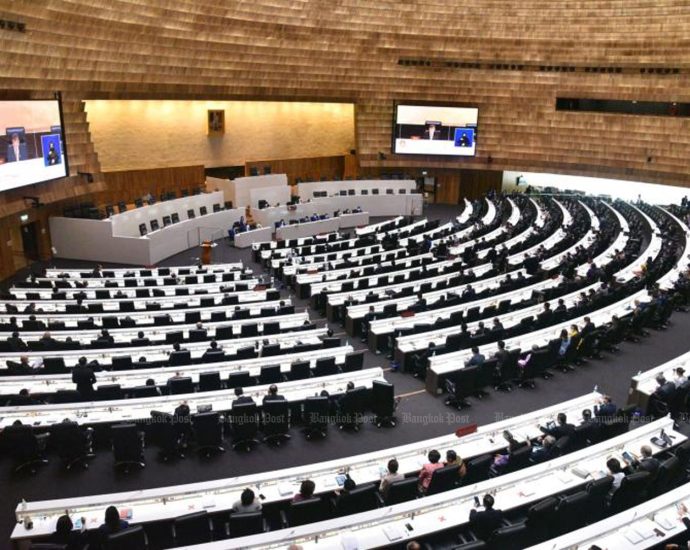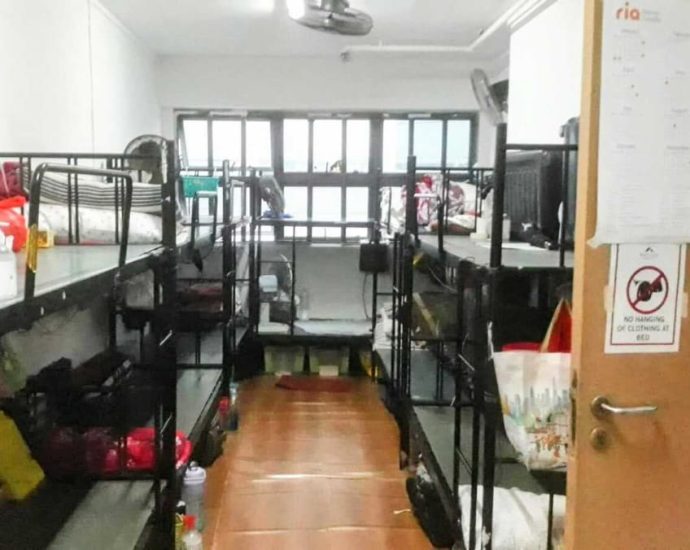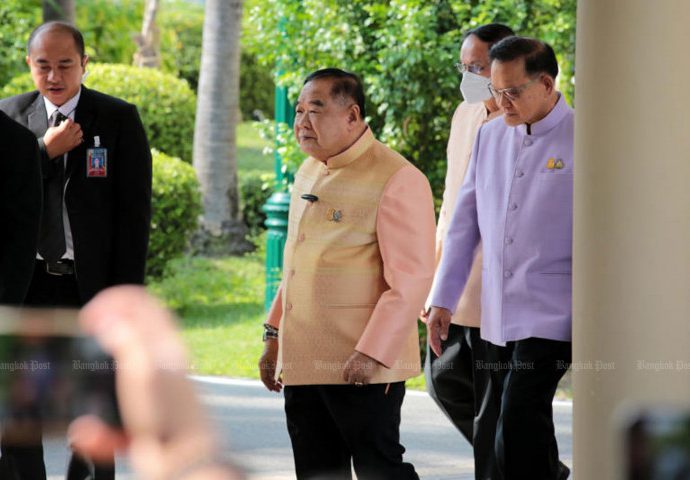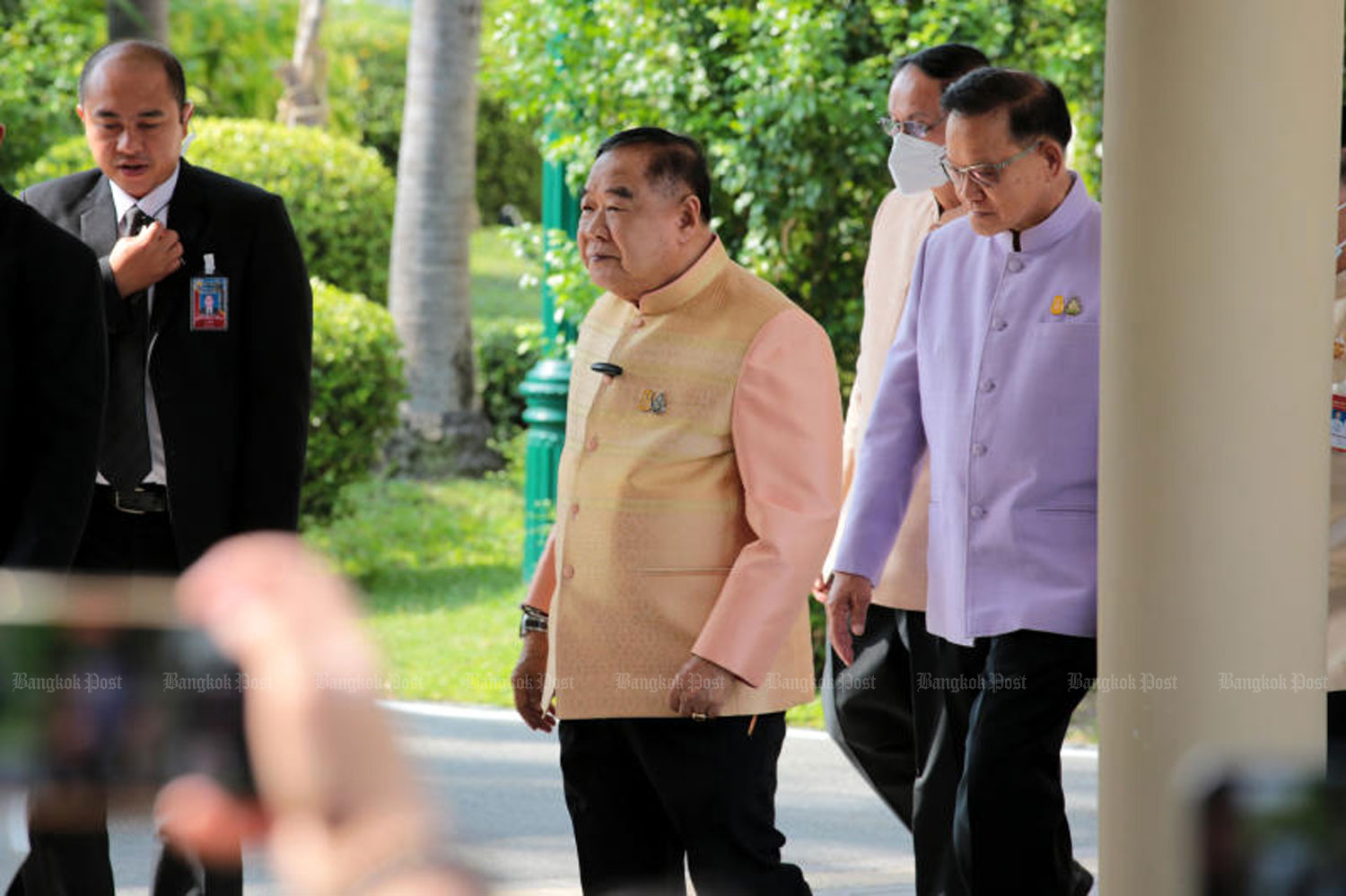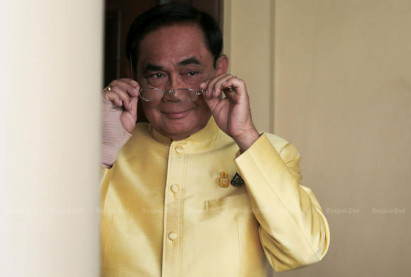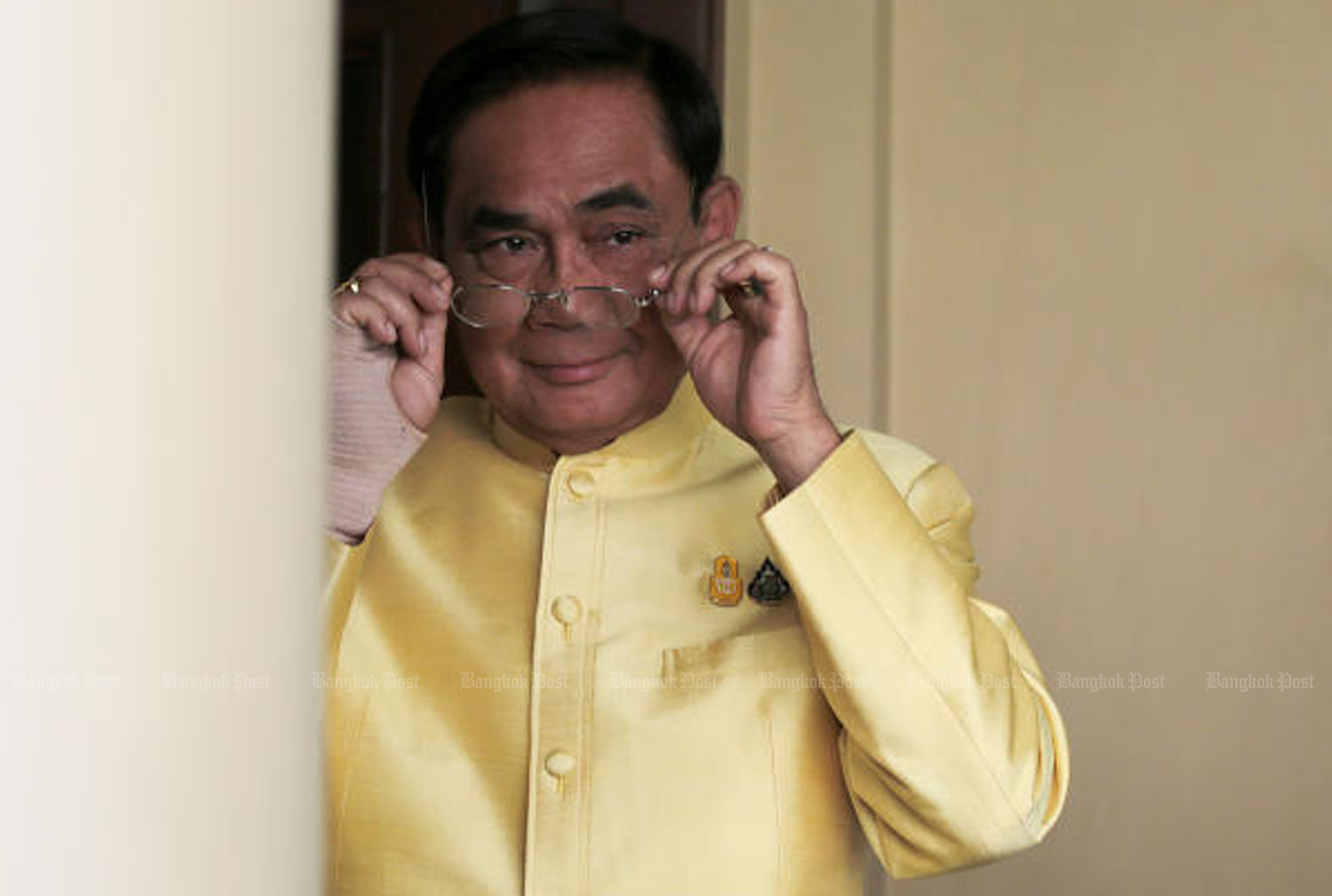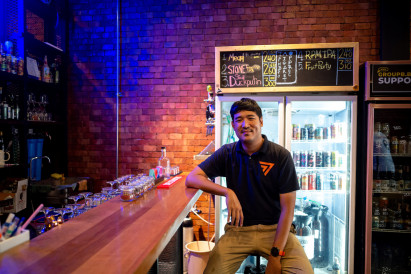Coalition MoU could land MFP in hot water: activists
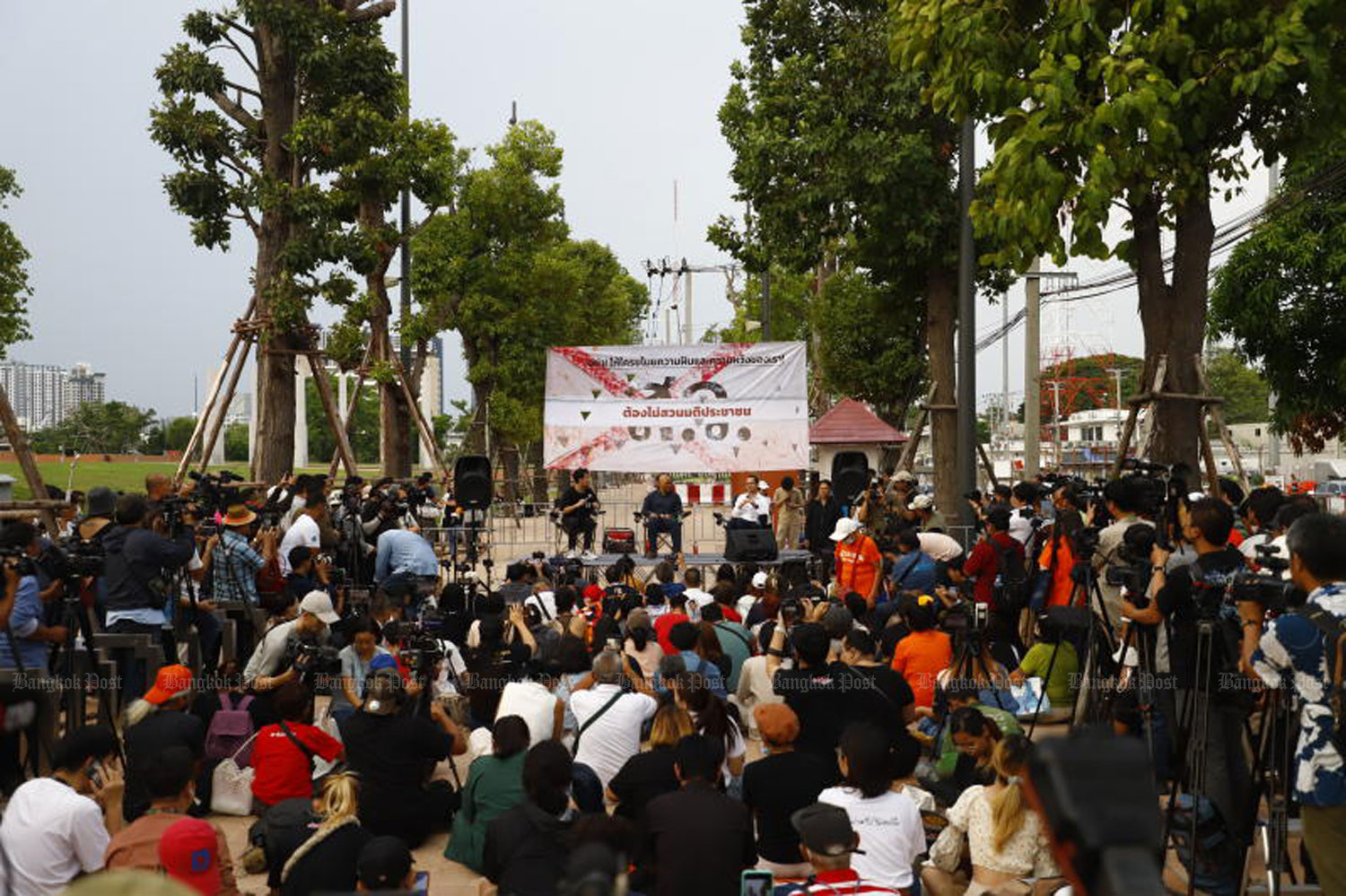
Part of the memorandum of understanding (MoU) signed between the Move Forward Party (MFP) and seven prospective coalition partners on Monday could end up backfiring on the MFP if it decides to pursue amending the ultra-sensitive lese majeste law, which is not stated in the pact, according to political activists.
The part in question is believed to be a last-minute revision made before the MoU was signed by the MFP, Pheu Thai, Prachachart, Thai Sang Thai, Seri Ruam Thai, Fair, Palang Sangkhom Mai and Pheu Thai Ruam Phalang parties.
It reads: “The missions of the MFP-led government must not act to change the democratic system with the King as the Head of State.”
Piyabutr Saengkanokkul, secretary-general of the Progressive Movement and the MFP’s election campaign assistant, wrote in a Facebook post on Tuesday that he could not agree with this part. He said it is already stipulated in the current constitution.
“Repeating the very same text in the MoU won’t lead to any legally binding or political effect since an elected government could never change the form of the state or the system of government anyway. Only the coup makers can,” he said.
The part sounds more like a disclaimer furnished by parties consumed by self-consciousness about what they might do wrong in the future, he added.
Also appended to the part, which could set a trap for the MFP-led government, was a clause that states “…with the King as head of state holding a revered status and who cannot be violated”.
The clause could run the MFP into legal hurdles if and when it proposes to alter Section 112 of the Criminal Code, or the lese majeste law, according to Mr Piyabutr.
Mr Piyabutr said he has been spreading his academic opinions through various public forums over the past decade as to why he strongly believes Section 6 of the constitution — which mirrors the appended part — should be changed in line with the King’s actual political power.
He insisted, however, that this is purely his personal opinion and has nothing to do with the MFP.
Even if the MFP later amends the lese majeste law, other coalition parties and senators are likely to cite the signed MoU and Section 6 of the constitution to justify not supporting such a move, he said.
Mr Piyabutr also disagreed with the MFP omitting from the MoU its push for an amnesty for political convicts and suspects. Instead, the MoU states the matter will be left to parliament.
“The MFP has an obligation to fulfil the wishes of many people and youths to end political conflicts resulting from the past coups,” he said.

